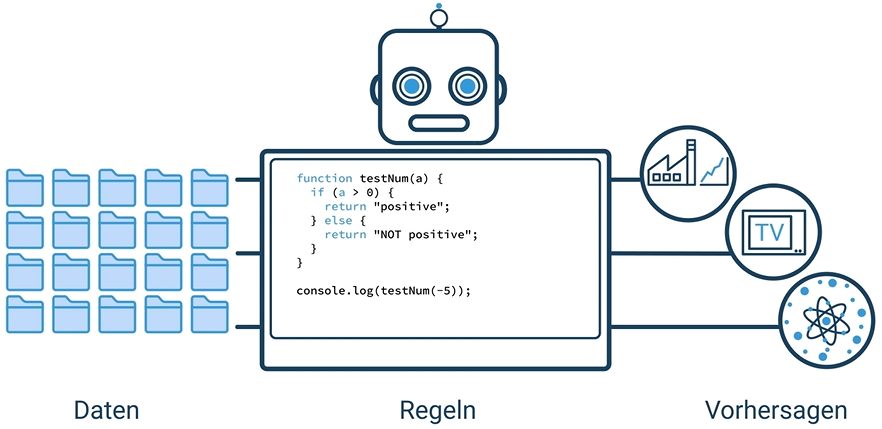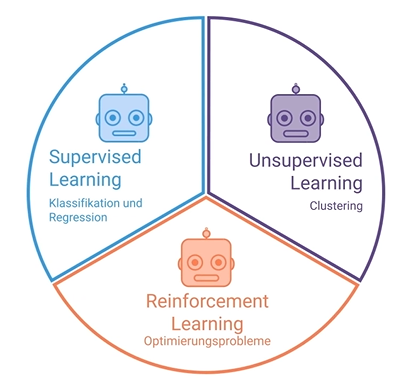Is the hype justified?
We often talk about new technologies, but do you know what Machine Learning really is and what it can do? What is machine learning in a business context?
Simply put: At the Machine Learning is about computer algorithms that train on real-life data sets to generate predictive models.
Given buzzwords like artificial intelligence (AI), machine learning (ML), and deep learning (DL), artificial intelligence can be viewed as the big picture. Machine Learning and Deep Learning are each subsets of the umbrella topic of AI. Likewise, Deep Learning is a subset of machine learning.
Artificial intelligence means that a computer simulates human things. Within AI, machine learning is one of the fastest growing technologies. Machine learning is a subset of AI where applications learn from data without being explicitly programmed. Given the possibilities ML offers, many companies are thinking about integrating ML into their business.
But how do you get it right with your team from the start?

Implement Machine Learning in the company, but do it right!
Many companies want to use machine learning to process their data. But all too often, pilot projects end up disappointing and do not achieve the desired goals. Or they fail shortly after introduction. Based on numerous experiences with machine learning from projects of our partner Enjins and training courses at StackFuel, we present you four valuable lessons for the realization of sustainable machine learning solutions.
1 Good planning is half the battle
To realize sustainable machine learning, you should start with a concrete plan and a business case. To do this, evaluate the data quality and business potential of machine learning in your organization. To solidify the plan, you should design a roadmap and infrastructure blueprint before developing a machine learning engine.
2 Business experts do not forget
Make sure you involve your internal business experts during development, testing, and then use. Machine learning doesn't exist without people learning. Build in feedback loops that elicit the missing information from the minds of experts to increase the performance of your model.
3 The beginning of the end
A model is not finished when it has gone live. What matters is ongoing operation and continuous iteration. Therefore, go into production with a model of limited complexity and start learning in a live environment. Only in the "real world" will you learn the value of your machine learning solution and achieve a fully functional product in the end.
4 Upskilling your talents
To kick-start or accelerate your ML practice, help from external parties might be useful. Hiring just one or two junior data scientists is probably not enough. Ultimately, you should make sure you build your data science and machine learning knowledge internally. This will be an important asset to your company in the future.

Enjins - The Machine Learning Engineers
Enjins is a Netherlands-based company that develops user-driven machine learning engines with a particular focus on scale-ups and mid-sized companies. With blue-chip scale-up customers such as Wunderflats and Sendcloud, Enjins believes in cracking the black box of machine learning models by providing tools that explain the models' behavior. Increasing transparency leads to trust, a cornerstone for creating business value in addition to machine learning. Learn more about Enjins at www.enjins.com.
Since August 2020, StackFuel has been working with Enjins as a strategic partner to accelerate Machine Learning adoption in enterprises. While we provide all Enjins customers with our online training courses in Artificial Intelligence, Data Science and Programming, Enjins helps companies test, develop and operationalize Machine Learning solutions. Together, we thus offer an integrated Machine Learning portfolio of Machine Learning consulting, development and training.
Learn more about StackFuel's online continuing education courses on the topic of Data Analytics and AI.





